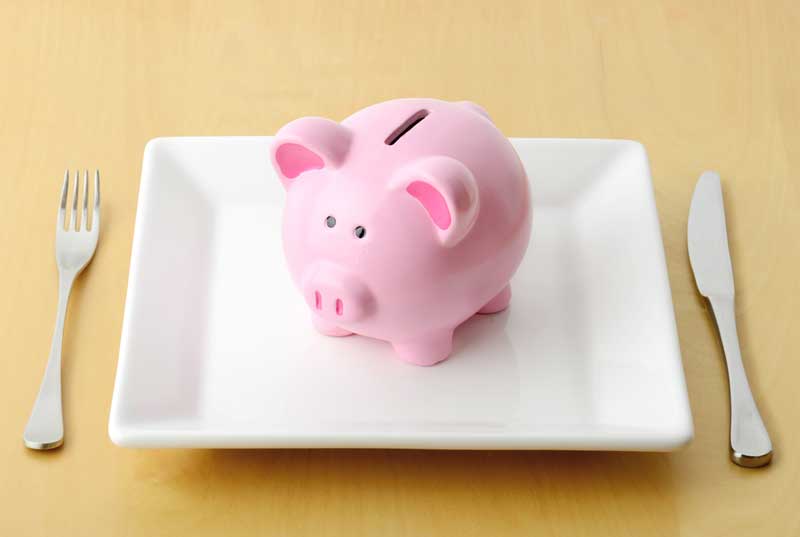Food is one of the biggest monthly expenses for most households—but it’s also one of the easiest places to save. With just a few small changes, you can keep your meals satisfying without draining your wallet. Here are a few easy tips to help you spend less on food without sacrificing quality or taste.
Plan Your Meals
Meal planning is a game changer. Take 15–20 minutes each week to plan out a few breakfasts, lunches, and dinners. You don’t have to plan for every single meal, and you don’t have to cook from scratch! Even buying a frozen, microwaveable lunch option, or a salad kit and pouch of tuna makes a satisfying, affordable meal (and will be healthier & cheaper than fast food, too!). Make a shopping list based on your plan and stick to it. This helps reduce impulse buys – more on that, below.
Cook at Home More Often
Eating out adds up quickly. A homemade meal typically costs $4-6 per person, while a restaurant meal costs $15 on average. Cooking at home – even simple meals – can save you a lot of money over time. If you’re short on time, batch cook* or use a slow cooker to make meals ahead of time for the week. Also, explore healthy but easy “convenience” foods, like frozen veggies that steam in the microwave, meal kits, canned beans, pouches of cooked whole grains, or pre-chopped veggies.
(*Batch cooking = if you’re going to cook, cook double! Make a double batch of a family favorite chili, casserole, taco meat, or soup. Eat half now, and freeze the other half for an easy meal in the weeks to come. Cook once, eat twice!)
Embrace Discounts
Generic or store-brand items are often just as good as name brands, and they’re significantly cheaper. Give them a try, especially for staples like rice, pasta, canned goods, and dairy.
Check out your local grocery ad or app for deals of the week, coupons, meal ideas, and more. If you use SNAP or WIC benefits, take advantage of the Kentucky Double Dollars program at local Farmer’s Markets throughout the Spring, Summer, and Fall – they double the money you receive for produce, and sometimes eggs and dairy, too.
Shop With a List (and don’t shop hungry!)
Never shop hungry! You’ll be more likely to buy extra snacks and treats. Go to the store with a list and stick to it. This cuts down on unnecessary purchases and keeps you focused on what you really need. If you’re an impulse shopper, or dislike grocery shopping, try out the digital grocery shopping and pick-up services at your preferred store.
Use Leftovers Creatively
Don’t let leftovers go to waste! Use last night’s chicken in today’s salad or wrap. Get creative with what you already have to stretch meals and reduce food waste.
Written by: Stephanie Anklan, Registered Dietitian




